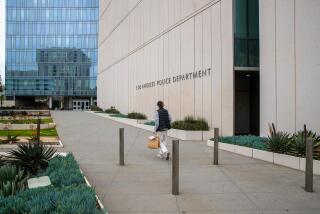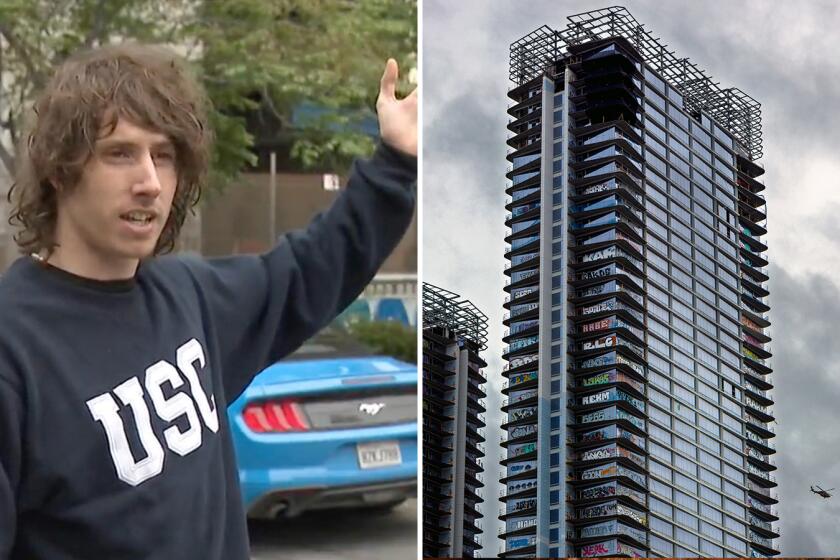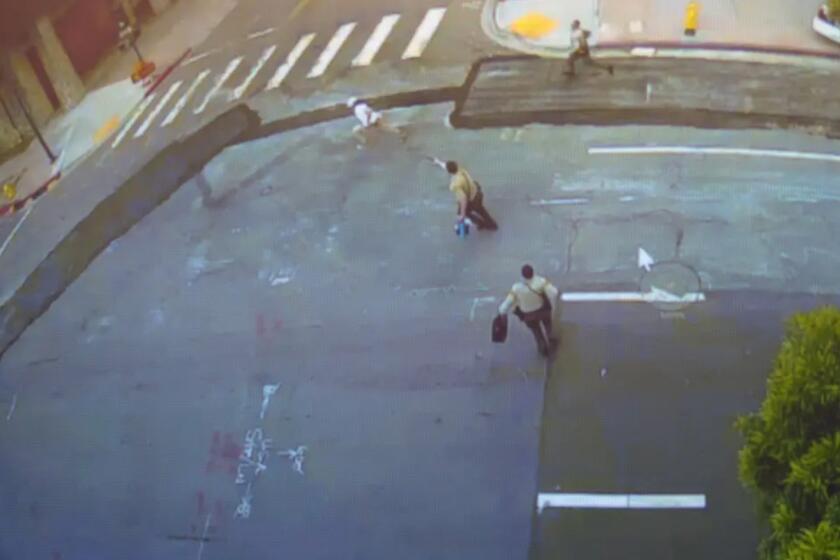Williams’ Lawyer Appeals to Supreme Court
An attorney for four-time convicted murderer Stanley Tookie Williams, who is scheduled to be put to death Tuesday at San Quentin State Prison, filed an emergency request Saturday night with the state Supreme Court for a stay of execution.
In addition, Pasadena lawyer Verna Wefald filed a 150-page petition for a writ of habeas corpus. The petition raises numerous constitutional issues challenging the validity of the convictions and death sentences meted out to Williams in 1981.
Williams, a co-founder of the Crips street gang, has been the subject of a celebrity-studded clemency campaign based on a claim that he has redeemed himself with anti-gang work from death row. Gov. Arnold Schwarzenegger’s office said Saturday that the governor had not yet decided the clemency request, which, if granted, would commute Williams’ sentence to life in prison.
Schwarzenegger met with lawyers for Williams and the Los Angeles County district attorney’s office for more than an hour Thursday in Sacramento. The governor told reporters Friday that he was agonizing over whether to spare Williams’ life.
Shortly after 3 p.m. Saturday, a spokesman for Schwarzenegger said the governor was taking no action before today. The decision could be delayed until Monday.
Wefald declined to comment Saturday night. Her request for a stay states that “it will be withdrawn in the event the governor grants clemency.”
Williams was convicted of shooting Albert Owens to death during a robbery at a 7-Eleven in Pico Rivera on Feb. 27, 1979. Williams also was convicted of the March 11, 1979, murders of motel owners Yen-I Yang and Tsai-Shai Chen Yang and their daughter, Yu Chin Yang Lin, who were killed at the Brookhaven Motel on South Vermont Avenue in South Los Angeles.
Williams has consistently denied he committed the murders, although he has apologized for his role as a co-founder of the Crips, a gang considered responsible for numerous murders in Los Angeles and beyond.
Williams’ convictions have been upheld by the California Supreme Court, a federal district court judge in Los Angeles, the U.S. 9th Circuit Court of Appeals and the U.S. Supreme Court.
California’s highest court has rejected four previous habeas corpus petitions -- the traditional method to challenge unconstitutional confinement -- filed on Williams’ behalf.
The petition filed Saturday night alleges that an “error of constitutional magnitude led to a trial that was so fundamentally unfair absent the error no reasonable judge or jury would have convicted” him.
Wefald asserted that the prosecution failed to disclose that trial witness Alfred Coward was not a U.S. citizen and that he had a violent criminal history.
The failure, she said, had the effect of “depriving Williams of the opportunity to mount a defense” that Coward “was the true killer of Albert Owens and that he falsely accused [Williams] in order to deflect suspicion away from himself.” Coward is now in prison in Canada for the murder of a man during a robbery.
“All of the witnesses who implicated ... Williams were criminals who were given significant incentives to testify against him and ongoing benefits for their testimony,” Wefald wrote in the stay petition.
“This type of testimony is the leading cause of wrongful convictions in murder and capital cases in the United States,” she wrote, citing a study done at the Northwestern University Law School’s Center on Wrongful Convictions.
Wefald’s petition notes that a bill calling for a death penalty moratorium in the state is scheduled to be heard in the California Legislature in January.
If the measure passes, executions would be temporarily suspended in the state while the bi-partisan California Commission on the Fair Administration of Justice “investigates the causes of wrongful conviction in California and develops a set of recommendations as to how best to prevent the conviction of innocent people and specifically considers the administration of capital punishment in California,” the stay request states.
Wefald also alleged that the prosecution failed to disclose that Williams was “forcibly, involuntarily, surreptitiously and continually drugged with powerful tranquilizers and/or other psychotropic medication by the Los Angeles County jail as a form of management control, thus rendering him incompetent to stand trial.”
Wefald’s brief chastised Deputy Dist. Atty. Robert Martin, who prosecuted Williams. She noted that he was “twice found by a unanimous California Supreme Court to have engaged in prohibited racial discrimination during jury selection in a capital trial,” and that convictions in both cases were reversed. In closing arguments in Williams’ trial, Wefald wrote, Martin compared Williams to a “Bengal tiger” in a zoo.
More to Read
Start your day right
Sign up for Essential California for news, features and recommendations from the L.A. Times and beyond in your inbox six days a week.
You may occasionally receive promotional content from the Los Angeles Times.






